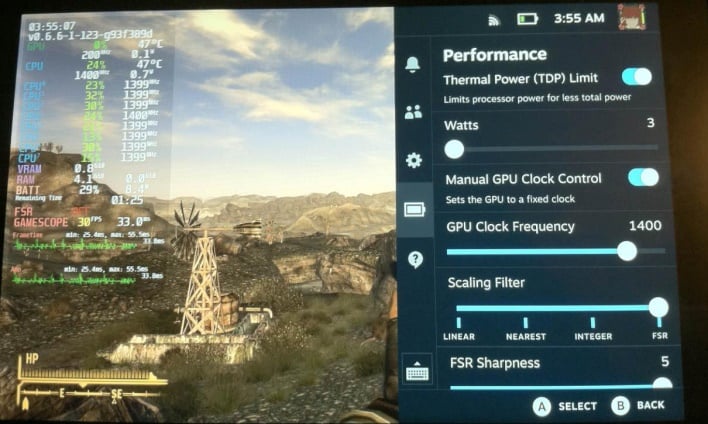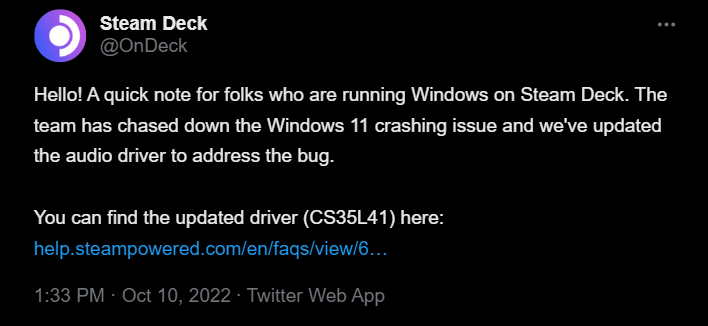Valve's
Steam Deck is a killer little machine, for what it is and for what it costs. $399 gets you a quad-core Zen 2 PC with 16 GB of memory and a
surprisingly-fast little integrated Radeon. The machine ships with the Linux-based SteamOS installed, but it's a fully-capable PC, and you can
install Windows on it if you want. However, many users who have done so have complained of stability problems and frequent system crashes.
It may seem like a no-brainer to
put Windows on the Steam Deck given that it's just a little PC, but the machine is really built for the SteamOS that it ships with, and replacing the OS
with Microsoft's can bring a lot of headaches you didn't think about beforehand, like UI scaling issues and input problems. Indeed, Windows was never made for use on a handheld game system, and that's why the
GPD Win devices usually include a physical keyboard and trackpad.
Furthermore, you lose access to most of the "special sauce" that makes the Steam Deck great, like the suspend-and-resume feature, the ability to toggle the SoC power limit and FSR scaling from the overlay, and the easy-to-use game library interface. You'll also end up with worse battery life due to the overall heavier nature of Windows.
Still, there is software (like Game Pass games) that simply won't run correctly on SteamOS, and that can make installing Windows seem like a good idea. Make extra certain that you absolutely need to run that program on the Steam Deck, though, because you can't dual-boot on the handheld yet. That means that installing Windows requires either running it off an SD card—which presents its own challenges—or nuking the built-in SteamOS.
It turns out that the cause of the issues was the sound driver for the Steam Deck's bespoke audio hardware. Microsoft has said in the past that the primary cause of Windows' much-discussed stability issues was third-party drivers, and that's still the case; a faulty driver has the capability to wreak all kinds havoc. Valve has issued a new driver to address the issue, and you can find the download
here.




